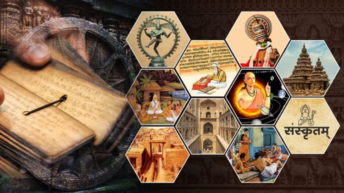Acharya Prafulla Chandra Roy, a chemist from Kolkata, was a professor at Presidency College during the British Rule. He was an extremely intelligent historian, educational, chemist, industrialist and philanthropist. He established the first modern Indian Research School and is known as the father of chemical sciences in India. Being a Bengali, most of his articles were written in the Bengali language and in keeping with that indigenous philosophy, the focus of the National Education Policy (NEP) is to emphasise and give importance to the mother tongue.
P C Roy dreamt that the country would acquire a place in the western countries for life-saving products. When he read the book “The Greek Alchemy” (La Chimie des Anciens) written by a French chemist, Barthelot, he felt that Indian Knowledge should also be brought to the notice of the contemporary world. He wrote a book, “Hindu Chemistry” which put forth the development story of the Indian Chemicals, the growth of Chemistry in India, etc. This was indeed meant to increase the pride of Indian citizens in their scientific heritage.
He emphasised the need to build a Self-Reliant Bharat. In pursuit of this objective, in the pre-independence period, he opened up the ‘Bengal Chemicals’ company. He mainly wanted to establish innovative teaching methods to break away from what he regarded Rote Learning and he even considered his lectures and practicals to be old-fashioned and not interesting enough. These novel teaching methodologies are the key focus of the NEP 2020. According to Roy, there should be a multi-subject option in the curriculum wherein a student of science stream can also choose to study Sanskrit or any other subject of his choice. Therefore, we can say the NEP 2020 has its roots in the thinking of P. C. ROY and his visions about a holistic and creative education system.
On the 29th of July, 2020 the Union Minister for Education Shri Ramesh Pokhriyal Nishank along with the Union Information and Broadcasting Minister Shri Prakash Javadekar put forth the highlights of the National Education Policy 2020. This policy was developed by a specialised committee that headed by the academicians K. Kasturirangan. The NEP aims to contribute to making India a superpower. It has been designed so as to develop the education system in such a way that it contributes towards the transformation of the country into a global educational hub. The NEP approved on July 29 is the first education policy of the 21st century which replaces the National Policy on Education (1986).
If we look at the changes made then it is noticeable that the usual 10+2 structure will be replaced with a 5+3+3+4 structure. The Board Exams for classes 10 and 12 will be continued but redesigned with the exams being conducted twice a year. The basic aim of this policy is to reduce the burden of curriculum for the students. In higher education, the undergraduate degree will take 4 years wherein the students will be allowed multiple exits but with a proper certificate after each exit. There are many other major and minor changes which have been mentioned on the official websites.
To conclude, we can say that the National Education Policy has been designed taking into consideration the various challenges and issues that have faced India’s education policy from time to time. The policy aims at resolving these issues and revamping the education system. Therefore, the New Education Policy wishes to change the education system of India and bring in significant developments in that field by 2030.






Add comment